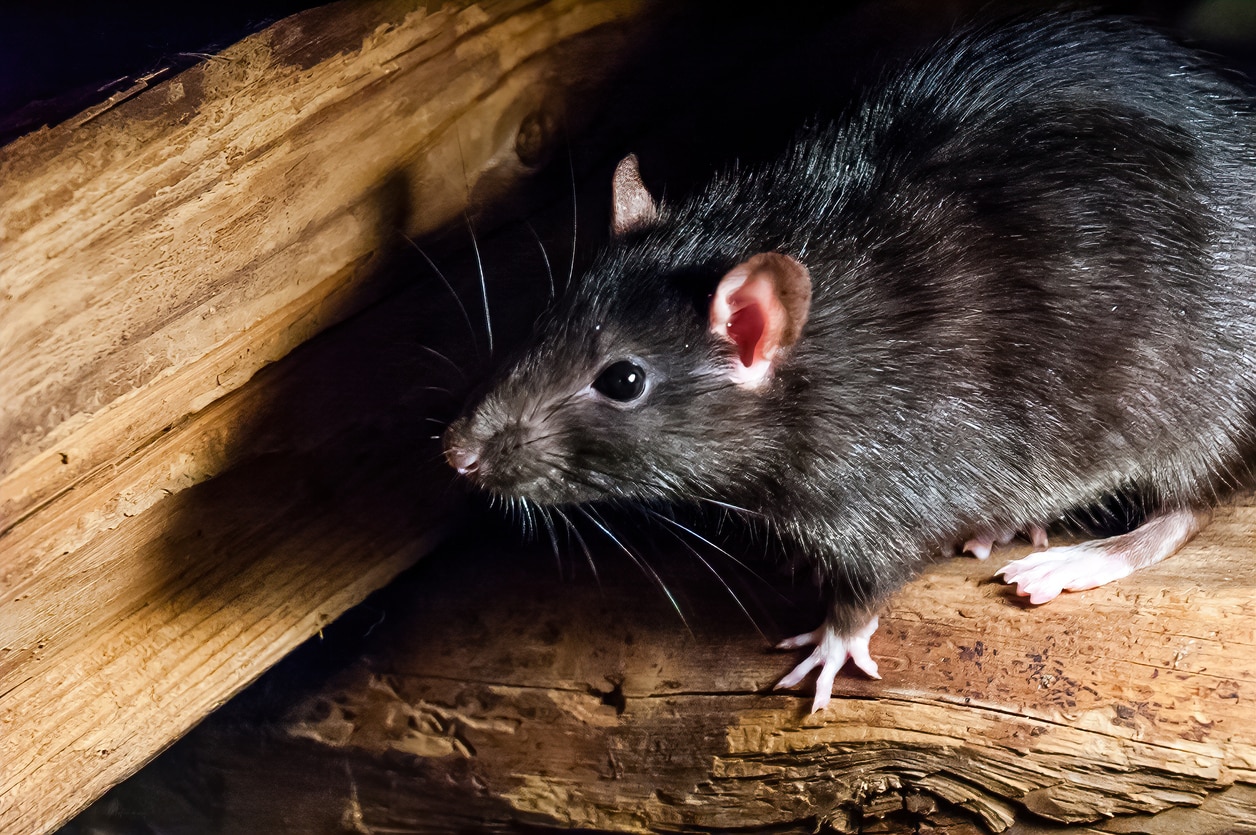Author: Kurt Treftz, Cascade Pest Control

It’s one thing to deal with live rodents in your living space, but dead ones might be worse. If you find yourself facing the stench of a dead rodent, don’t despair.
Whether you’ve discovered a rodent in an unused room or have one stuck in a crawlspace, attic, or wall, you might think the odor is here to stay. Don’t fear; it doesn’t last forever. The good news is that nature will take its course and eventually the rodent will decompose and the smell will fade. The bad news is that it might not happen for days to weeks depending on the heat, humidity, and access to decomposers / scavengers. So what can you do?
Tackle the Source of Dead Rodent Odors
Remove rodents carcass
If at all possible, find and dispose of the rodent. Whether caught in a trap or stuck in a crawlspace, the rodent should be removed as quickly as possible. Not only do rodents spread disease but a dead one can attract other unsavory characters. Dispose of it quickly & correctly.
Dispose of any material exposed to the carcass
Clean around the area as much as possible. If the carcass touched material that can be thrown away like a blanket, nesting material, or insulation, trash it if you can. Disinfect the floor or anything else that had contact with the decaying animal.
Ventilate the area
Once you have successfully disinfected the area, your next best option is to ventilate the area. Fans, open windows, and central ventilation systems help dissipate the stench. If you found and removed the rodent, this might be enough to quickly and efficiently deal with the aroma.
Attack the Dead Rodent Odors Themselves
Sometimes a rodent dies in a location where it would require removal of walls or other considerable demolition to reach it. In this case, you might have to deal with the decomposing rodents in other ways.
Options for neutralizing the odor:
Deodorizing sprays / masking agents
One quick way to deal with the odor is to mask it with air freshening sprays, essential oils, candles, or the like. This is usually a fast, cost-effective strategy, but sometimes the resulting mix of odors is just as revolting as the source of the smell. (Of course, you can always add this option to any other steps along the way to see if it helps create a more pleasant experience as you tackle the problem).
Enzyme sprays
Purchasing an enzyme spray might help, especially if you can get close to the source of the smell. If you can get the spray to the source, it can help to neutralize the odor. If you already have a pet enzyme spray at home, this is a quick, effective solution.
Anions
Anions are negatively charged particles that attract positively charged ions like a magnet. In this case, activated charcoal or other anionic (negatively charged)) material attracts the positively charged odor molecules of the dead rodent. An ion exchange takes place changing the make-up of the molecule and rendering it odorless. This is a great option when you can’t actually get to the carcass to remove it. Anions constantly absorb the odor so you can hang bags of the material wherever you smell the odor. You can buy bags of anionic material specifically for dead animal smells. Similarly, dry coffee grounds also work to clean smells from the air.
Ozone generators / Air Purifiers
Lastly, you could invest in an ozone generator / air purifier. This is the most costly option, but you could try an air-purifying machine with an ozone generator or carbon-based filter. Note that the ozone generators should only be used in unoccupied spaces. (Over time, ozone attacks the mucus membranes in the lungs. Ozone should only be used while rooms are not inhabited by humans or pets). Air purifiers that use other types of filtering can be used as well.
If you think you have a rodent infestation, don’t battle it alone. Call the experts at Cascade Pest Control: 888-989-8979. They can help you locate the source and stop these whiskered invaders.
